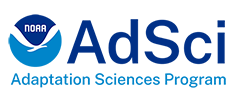Advancing understanding of climate adaptation and resilience in Gulf of Alaska fishing communities.






Advancing scientific understanding of climate, improving society’s ability to plan and respond






Advancing scientific understanding of climate, improving society’s ability to plan and respond

